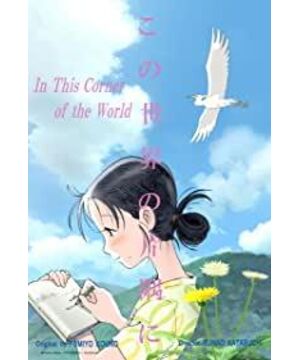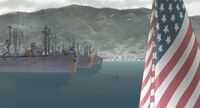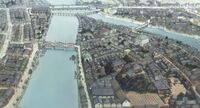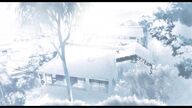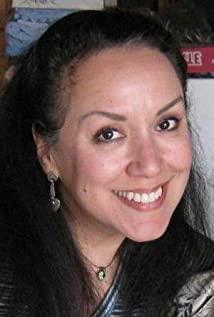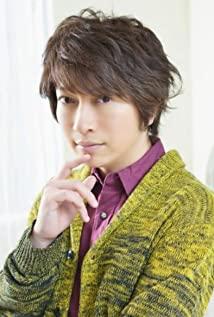The story begins in 1935, ten years before the atomic bombing of Hiroshima. Suzu lives an ordinary life in Hiroshima, Japan with her brother and sister, her parents and her family of five. Although material is scarce, life is full of joy and laughter. Suzu likes to use a brush to record everything that is peaceful and beautiful in Hiroshima.
Soon, Ling reached the age to be married and married to Wu Shi next door. Wu City has a military port, so the local navy is mostly. In Japan during the war, poverty and poverty were everywhere. Adult men in the city are all working in the Navy. Suzu's husband trained at the Naval Academy, and her father-in-law was a mechanical designer. There are also a mother-in-law who has inconvenient legs and a married sister.
The slender Ling took care of the daily life of her in-laws, and at first felt a little uncomfortable about leaving home. Fortunately, the amiable mother-in-law, the honest and kind father-in-law, the straightforward sister, the lively and lovely little niece, and the husband who is not good at words but loves Ling, these people have built a new life, and she gradually integrates here.
It is difficult for Ling to understand what is going on in the world outside Kure City. Like most people in wartime, she does not have the ability to analyze the world situation. All she perceives is the barren life in front of her, the majestic warships in the harbour, the little tricks neighbors exchanged about how to save food, and the more and more frequent air defense alerts.
For ordinary people, war is a process of invisible and gradual appropriation of life. It does not have an entity that allows people to see its hideousness, but brings misery and fear into everyone's life in a co-existing way.
The impact of the war is rapidly fermenting, and the small world that Suzu lives on begins to fall apart. The number of hiding in the air-raid shelter continued to increase, the buildings on the street were riddled with stray bullets, the life and death of the father-in-law disappeared, and the food that could be exchanged every day was also in short supply.
Life at this time can no longer be called life, but survival, survival in the cracks that have not yet been affected by stray bullets. However, the war does not skimp on its cruelty, and Suzu loses her right hand for painting, as well as her niece holding her right hand.
With great sadness and fear looming over the family, Ling's story is but a microcosm of thousands of ordinary people. It was too late to cry for the life that passed away, and those who survived lingered and panted like ants. Ling was shaken for the first time. She hated it, but she didn't know who to hate. She could only hate the dud that took her niece's life. She wanted to escape, to return to her temporarily safe hometown of Hiroshima, the only good thing left in her life.
On the morning of August 6, 1945, Ling was cleaning up the house that had been damaged by incendiary bombs last night. A strong white light engulfed the line of sight in an instant, and then the house shook violently. The falling rock dust rolled from the roof, and Ling leaned on tightly. Hold the beam until the tremor disappears. At this moment, life seems to be the same, and nothing has changed.
Until the news came, Suzu looked at the wooden window from Hiroshima hanging on the tree, and saw the scene she made with her family when she was a child, but her tears could not flow. It was razed to the ground in an instant by the atomic bomb.
On August 15, 1945, the news of the emperor's surrender came on the radio. The bell rushed out of the door, as if there was infinite energy in her body about to explode, she cried to the sky torn apart, "Then what was all this for!" Even though her life had been fragmented, she never lowered her head, It was her trust in the country that supported her along the way. She chose to unconditionally trust and nurture her motherland, what a mistake. However, the once firm belief has disappeared, how to persevere.
The war has stopped, but Ling can no longer have an ordinary life, and the life that has been torn and smashed can never be healed. No words can accurately describe the real conditions of life in the shadow of war, and hell is probably the closest word.
[The article was first published on the public account DING (DING0612_), declined to reprint]
View more about In This Corner of the World reviews


